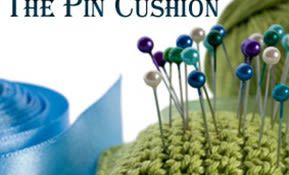
What I Learned At Camp
Yesterday afternoon I returned home after spending four days at a "Mothers' Camp" at the Dead Sea. A Mother's Camp? What in the world is that? Here in Israel...

Yesterday afternoon I returned home after spending four days at a “Mothers’ Camp” at the Dead Sea. A Mother’s Camp? What in the world is that? Here in Israel, it is common for organizations to take over a five-star hotel and, after koshering the kitchen and making sure that everything conforms to the highest levels of modesty, offer heavily subsidized all-women getaways. For four marvelous days the women listen to inspirational lectures, eat, pray, eat, say Tehillim, eat, learn folk dances, eat, swim, eat, relax in the Jacuzzi, eat, sunbathe, eat, relax in the spa, eat, sing at a kumsitz, eat and, of course, talk (especially during the meals!).
Going away for a few days made me realize the importance of doing something for me! Yes, our batteries need recharging. Women tend to put others’ needs before their own, but if we don’t take care of ourselves, we will be unable to properly (that means with a smile!) perform our myriad tasks.
I once heard a lecture about the importance of taking care of ourselves. The lecturer (I believe it was the late Rebbetzin Greenberg, but I am not sure) spoke about how a woman is called the “ikeret habayit,” which, although commonly translated as “housewife,” really means “the mainstay of her home.” She pointed out that since everything revolves around the ikar, the mainstay (or core), the mainstay must be strong. She told a story of young mother living in Jerusalem during the “tzena” when food was strictly rationed and there never seemed to be enough to go around. She managed to purchase one egg. Rather than divide that one egg between her seven children, she ate the entire egg herself, explaining that by doing so she was “making a mother.”
Obviously there are times that we must stretch ourselves, and give more than what we think we are capable of giving, but, on the other side of the spectrum, we must know our limitations, and realize that there are times that we must replenish our own batteries to be able to continue giving to others. Sometimes, we must even do things that appear selfish to “make a mother” so that we can continue being a bastion of strength to others.
Although we were given more than ample nourishment, we were also provided nourishment for our souls, some of which I would like to share with our readers. One of the lecturers, Rabbi Mordechai Neugershal told an amazing story, which I would like to share with our readers.
Two Czechoslovakian Jews succeeded in escaping Auschwitz. They had been among the first Jews deported to the camp and were given important positions in the camp offices. Their positions provide them with access to many documents giving exact statistics of the murders that were taking place.
The story of their escape is miraculous. After digging under the third fence that encircled the entire complex (which consisted of several smaller satellite camps, in addition to the enormous Auschwitz-Birkenau complex) the first person they saw was a woman who despised the Nazis and assisted them in every way possible. She arranged for them to be smuggled across the border, where, again, the first person they met had all the right connections and did everything possible to help them. He assisted them in smuggling these important documents into Hungary, where they were publicized. As a result, many Jews were forewarned of the fate awaiting them and understood the need to escape. In addition, efforts were made by such heroic organizations as the Swedish embassy and Vaad Hatzalah to save as many Jews as possible. Although too few survived and too little was done by the Allies to save the last remnant of European Jewry, every individual Jew who managed to make it out alive was a miracle.
In the lecture, Rabbi Neugershal focused on one of the many miracles that occurred during the Jews’ escape from Auschwitz.
If a prisoner was unaccounted for, the Nazis would make an intensive search that lasted for three days. During that time, the third fence, which was not electrified and normally unmanned at night, was heavily guarded around the clock. But if the prisoners were not found after three days, the search was called off and the third fence was again left unmanned during the evening hours.
The two men managed to escape the main Aushwitz-Birkenau complex and hid in a small hiding space that their fellow Jews had created under one of the many pile of planks that dotted the landscape between the second and third fence. The moment it was discovered that the two Jews were missing, the Nazis began an all-out search, using specially trained dogs and thousands of specially trained soldiers. But the men had managed to get hold of some kerosene, and spread it around the area to confuse the dogs.
On the third day, just before the search was about to be called off, two soldiers approached the pile of lumber where the Jews were hiding. “Maybe they’re hiding under those planks,” said one.
“Impossible,” replied the other. “The dogs were here, and they didn’t find them.”
“Perhaps they used some chemical to confuse the dogs,” said the first soldier.
With that, the two soldiers started removing the planks that were concealing the two Jews. They removed five layers of planks. There was only one layer of planks separating them from the prisoners – only one thin layer of planks between the two men and the German soldiers.
The two Jews lay in their hiding place, shaking in fear. The worst had happened. They knew that torture, humiliation and death awaited them.
Suddenly, from afar, they heard the sound of people yelling and of dogs barking. “Sounds like they found the escapees,” said one of the soldiers. And with that, the two soldiers ran away.
The two Jews gave a sigh of relief.
Several hours later they heard the “All clear” sirens. Three days had gone by, and the search was off. As soon as it was dark, they would push the lumber off of their hiding place, climb out and slide under the fence separating them from freedom.
But they were so weak from the three days of fasting that they were incapable of pushing the lumber off of their hiding place! They tried – oh, and how they tried! – but they didn’t have the strength to move the planks. They were sure that their refuge would become their grave. Finally, after several hours of concerted effort, they managed to move the planks a few inches and crawl out from under the lumber.
Rabbi Neugershal pointed out that when the German soldiers were removing the layers of lumber that concealed the two men, the escapees were positive that the end had come. They viewed it as a terrible tragedy. Only later did they realize that without the two German soldiers, they would have remained buried alive in the stack of lumber! The two German soldiers were Hashem’s tool for bringing about their freedom!
In the same way, we will only understand the many seemingly tragic events taking place during our times at the time of the final redemption. Only then will we really understand that they were just Hashem’s tools to make our dream into a reality.
May that dream be realized quickly, and in our days. Amen.
Now wasn’t that a worthwhile vacation?







Tell us what you think!
Thank you for your comment!
It will be published after approval by the Editor.